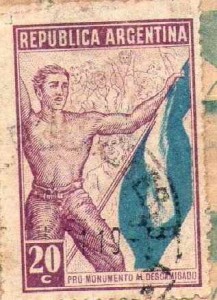 Cross-posted on the Corner:
Cross-posted on the Corner:
Critics of Pope Francis who describe him as a ‘socialist’ are fairly wide off the mark. Perhaps that was inevitable: Describing the ideology of a pope in conventionally political terms is, by definition, going to be a struggle. That said, in trying to understand Francis’ politics, it’s better to look to his Argentine past and, more specifically, Peronism and the way that Peronism (something, it should be said, of a shape-shifting concept) came to be understood.
For a deep dive into this issue, “Pope Francis, Perón, and God’s People: The Political Religion of Jorge Mario Bergoglio” by Claudio I. Remeseira is very well worth reading. Less subtly, Francis betrays clear signs of Peronist style, whether it’s authoritarianism, demagoguery and a certain weakness for conspiracy theory. So far as actual politics are concerned, his rejection of globalism fits fairly comfortably into Peronist notions of economic autarchy, and his ‘leftism’ as an extension of left-Peronism, the Peronism of the descamisados, a leftism that, combined with a certain anti-Americanism (Perón again) and that liking for strongman rule, made him so willing to help out the Castro brothers.
And not just that duo: Here’s Andres Oppenheimer, writing in the Miami Herald:
The Vatican’s mediation effort in Venezuela has been — to use a word much in vogue in Washington these days — a disaster. It has legitimized that country’s authoritarian ruler Nicolás Maduro, throwing him a lifeline when millions of protesters were demanding his resignation on the streets in October 2016. And it has helped him get back on his feet by further cracking down on the opposition.
Several interviews with Venezuelan opposition leaders and Organization of American States (OAS) Secretary General Luis Almagro this week convinced me that the Vatican’s mediation, and the opposition coalition’s failure to officially suspend it, have become the biggest obstacles for a solution to Venezuela’s political and economic crisis.
The Vatican’s mediation alongside that of the Union of South American Nations (UNASUR) — a group that has done virtually nothing but defend populist demagogues in the hemisphere — failed to result in any action. Maduro didn’t release Leopoldo Lopez and other prominent political prisoners, and as he has increased the overall number of political prisoners from 83 last year to 108 today, according to the Foro Penal research group’s figures…
It’s becoming increasingly clear that, to restore democracy in Venezuela, the United States and Latin American countries should implement the OAS Democratic Charter, which calls for gradual collective diplomatic sanctions against countries that break the rule of law.
But in an interview this week, Almagro told me that his hands are tied for as long as the Vatican-UNASUR mediation remains officially alive.
“While the Vatican remains there, we will definitely not take any action to move forward with the Democratic Charter,” Almagro told me. “If they tell us that that dialogue is over, and there is a formal communication by both the opposition and the Vatican to that effect, we will restart whatever work is needed.”
He added that, as of today, the paralysis in Venezuela is a result “of the Vatican’s presence and of a wait-and-see attitude by the Venezuelan opposition.” The Pope, argues Oppenheimer, should end the Vatican’s mediation efforts “and stop being an obstacle in the restoration of democratic rule in Venezuela”….
Maybe Francis will, but given the support that he has given to the Castro regime, I’m not optimistic.
